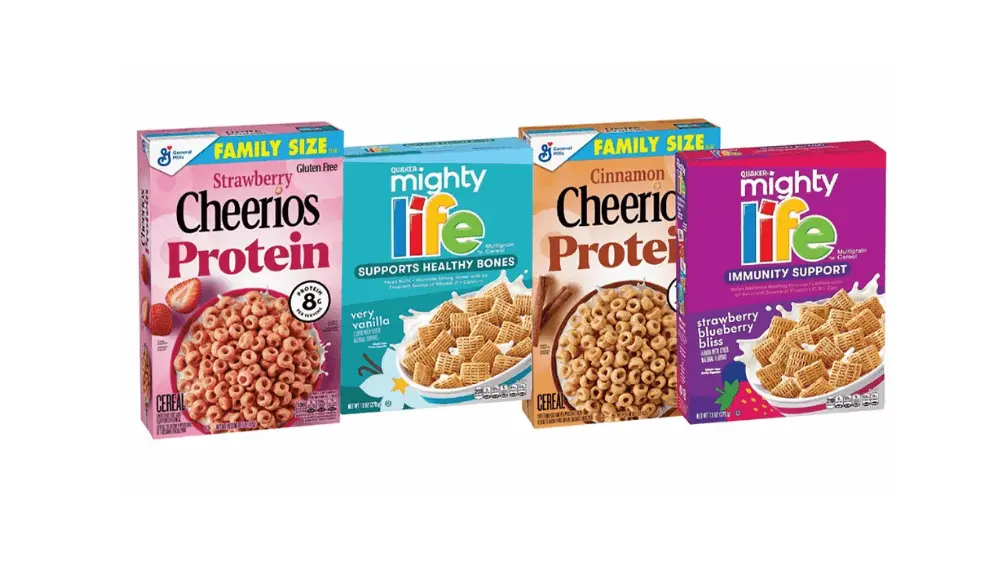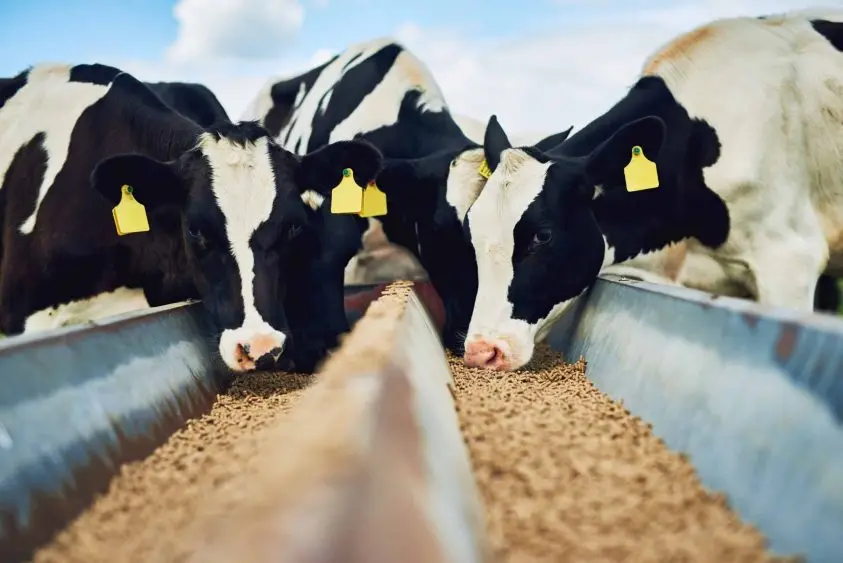KANSAS CITY — Interest in better-for-you products remains high, and ready-to-eat cereal stands out for its ability to deliver a variety of health benefits.
The Whole Grains Council in a survey conducted this summer found that 38% of respondents turn to hot and cold breakfast cereals for their whole grains intake. Food manufacturers believe that healthier options — specifically, cereals filled with whole grains, protein and fiber — will help them regain their footing in a category that experienced a dollar and volume decline over the past year.
Dollar sales for the RTE cereal category totaled $10.83 billion in the 52 weeks ended Oct. 5, down 1.4% from the same period a year ago, according to Chicago-based research firm Circana. Unit sales fell 0.5%.
With dollar sales of $3.29 billion, General Mills, Inc. is the largest RTE cereal maker. But the Minneapolis-based company experienced a 4.7% decrease in RTE cereal dollar sales in the 52-week period. Unit sales also were lower, falling 1.1%.
Executives in the General Mills’ North America Retail (NAR) division said at an Oct. 14 investor day conference that the company would focus on introducing more protein-rich products to attract users of GLP-1 weight-loss medications. As part of the strategy, General Mills will expand its Cheerios protein line, first launched in December 2024 in cinnamon and strawberry flavors before a cookies and crème variety was added in April 2025.
“In fiscal ’26, we’re taking action to help address the most critical GLP-1 user needs, leaning into categories that over-index with these consumers, like soup, snack bars and cereal,” said Dana McNabb, group president for NAR at General Mills. “A positive is that many GLP-1 user needs overlap with the needs of our 55-plus consumers. This means the protein innovation and the portion-controlled offerings I mentioned are going to benefit us with GLP-1 users as well.”
Changes also are brewing at Battle Creek, Mich.-based WK Kellogg Co, which was acquired by Luxembourg-based confectionery producer The Ferrero Group in September.
WK Kellogg was the second-highest sales performer in RTE category at $2.76 billion but, as with General Mills, dollar sales were off from a year ago. Dollar sales for the 52 weeks ended Oct. 5 were down 5.5%, while unit sales were down 2.7%, according to Circana.
In May, WK Kellogg said it would spend the back half of the year focusing on its SPOONS program, meant to highlight cereals with major health benefits, such as the recently relaunched whole grain cereal Kashi, which also will be an “anchor” in the company’s push to promote protein content in its cereals.
“We view the increased focus on health as a great thing for the category and WK Kellogg,” Gary Pilnick, chairman and chief executive officer of WK Kellogg, said when reporting first-quarter results. “We introduced the SPOONS framework at CAGNY, which expresses key health credentials for cereal, such as simplicity, protein and fiber. As we noted, SPOONS certainly applies to our health and wellness brands but equally applies across our entire portfolio. In the back half of the year, we’re bringing SPOONS to life through new media campaigns on our mainstream brands and relaunching Kashi.”
One major RTE cereal maker that enjoyed gains in the category over the past year was Chicago-based Quaker Oats Co., a subsidiary of Purchase, NY-based PepsiCo, Inc.
Quaker’s RTE cereal dollar sales in the 52 weeks ended Oct. 5 totaled $626.48 million, up 2.5% from the same period a year ago. Unit sales of Quaker Oats also were stronger over the 52-week period, rising 2%.
In April, Quaker Oats introduced Mighty Life, a multigrain cereal line and the latest addition to the company’s Life brand that was introduced back in 1961.
Mighty Life is available in two flavors: Strawberry Blueberry Bliss, which blends “a fruity burst of flavor with an excellent source of vitamins C, D and zinc to help support a healthy immune system,” and Very Vanilla, which features “a subtly sweet and satisfying taste with an excellent source of vitamin D and calcium to help build strong bones,” according to the company.
Quaker Oats said the new multigrain cereal will help the company meet “growing consumer demand for foods that deliver both functional benefits and taste.”





